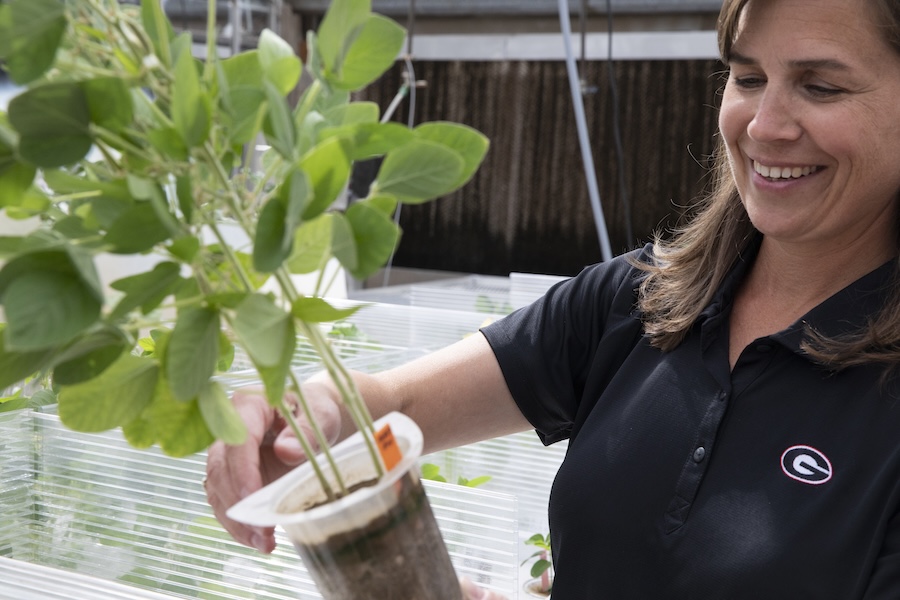By Sharon Omahen
University of Georgia
If you want the health benefits of soybeans but hate the beany taste of most soybean products, listen up. University of Georgia food scientists have developed soybean food products that don't taste so beany.
The scientists used L-Star soybeans, a new variety developed by the National Agricultural Research Organization in Japan. A naturally deodorized soybean, L-Star is lipoxygenase-free.
Beany enzyme removed
"This is the enzyme that produces the off flavor in some soybean food products," said Dick Phillips, a food scientist with the UGA College of Agricultural and Environmental Sciences. "With L-Star, consumers can get the health benefits of soybeans' polyunsaturated fatty acids in better-tasting products. Until now, it's been good for the heart, bad for the taste buds."
With funding from the American Soy & Tofu Corporation and the U.S. Department of Agriculture's Federal-State Marketing Improvement Program, UGA food scientist Yen-Con Hung, along with Phillips and UGA food scientist Anna Resurreccion, developed a new soybean product using L-Star beans.
New method used, too
"We started with a new soy milk because this is an established product that's available commercially," Hung said. "These are whole bean products."
Traditional soy milk is made by grinding soaked soybeans with water and then filtering out solid and insoluble materials, he said. The new L-Star soy milk is made by grinding the soybeans with water and not filtering out the solids.
A sensory specialist, Resurreccion conducted consumer studies last fall on the UGA campus in Griffin, Ga. The study revealed high consumer acceptance of the L-star soy milk. "The consumers we tested think the quality is equal to commercial soy milk," Hung said. "They like the color, appearance and taste, too."
L-Star tofu, instant soy milk
Another new product UGA scientists are working on is tofu made from L-Star soybean curd.
"It's also a whole-bean product, so consumers get the nutritional and health-related benefits from consuming whole beans versus only the soluble part of the soybeans," Hung said.
Under Hung's leadership, UGA food science graduate student, Mark Jarrard Jr. is working on an instant soy milk using L-Star soybeans.
To make it into the marketplace, the products must be developed by a food company, Hung said. The next stage of the project is to garner industry interest in the products.
L-Star or not?
Besides the new L-Star food products, Phillips created a quality control test. The test will assure soybean buyers they are truly buying L-Star soybeans.
"Soybeans are harvested and brought by trucks to a central buying point," Phillips said. "With the existing tests, there's a whole menu of things buyers look for, quality-wise. But they don't test for lipoxygenase."
The existence of the enzyme would let buyers know the beans are not L-Star. Lab methods that test for the enzyme aren't feasible at a buying point, he said.
Phillips' test uses color as an indicator to test soybeans for lipoxygenase. A buyer takes a sample from the load, crushes the beans, places them in a tube and shakes them.
"If the color fades, the beans contain the enzyme and the buyer knows they aren't L-Star soybeans," Phillips said.
Working with the Georgia-Florida Soybean Association, UGA scientists shared the test with a handful of buyers who are testing it in the field.
The test project was funded in part by the Georgia Agricultural Commission for Soybeans.






